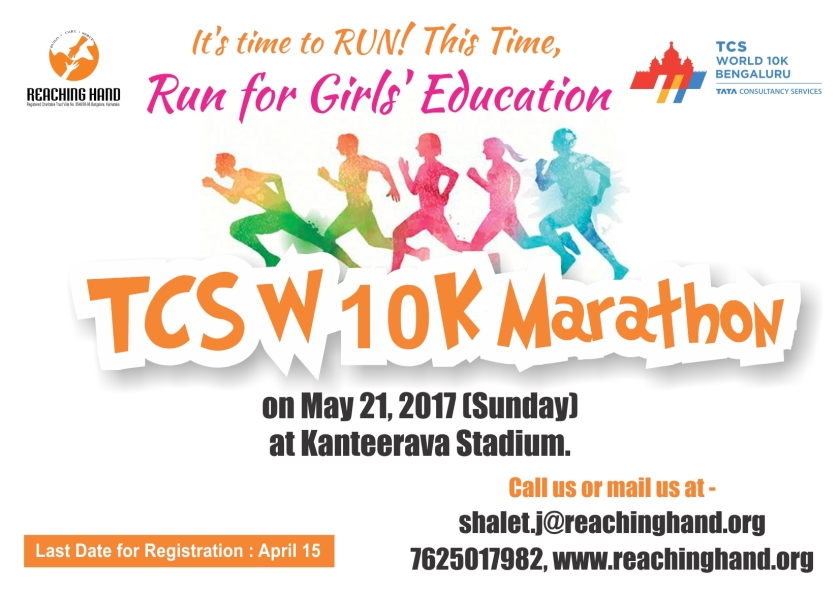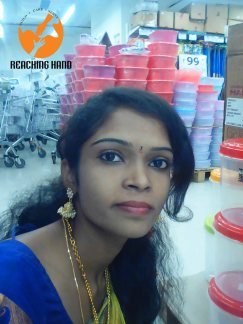Did you know India has 31 skill development councils ranging from aerospace to weaving to sports? Or that there’s a governmental agency focused on skilling?
Before joining Reaching Hand, I’d never heard “skilling” used as a verb nor heard of phrases such as the “skill gap.” However, now I have become keenly aware of the skill lingo and challenges associated with it. This skill gap arises as each year over 15 million Indian youth enter the workforce but over 75% are not job-ready. This will lead a need for over 700 million skilled workers by 2022 to meet industry needs. Each year approximately 7 lakh (700,000) engineers graduate from college in India, however only 5 percent are skilled for employment. In order to overcome this deficit, Prime Minister Modi introduced the Skill India scheme, which includes the National Skill Development Mission and aims to skill at least 400 million people in India by 2022. [1] Skilling in India can range from BPOs (call centers) in rural India that provide customer care for cell phone carriers in local languages to beautician and tailoring services in big cities.
At Reaching Hand, we view the skills gap as not only an employability issue, but seek to create a more gender-just and environmentally friendly society as well. We have three centers mainly focused on English, Retail, Work Skills, and Basic Computers. Recently we have also started Steer to Change, a program to teach women driving and place them in cab services, particularly for corporates and PAC, a paper bag-making program as plastic bags are illegal in Bangalore. Particularly in our women’s driving program, we are defying gender norms and aim to create a society where it is equally common for women to drive for corporates and cab services as it is for men.
Volunteers from Mu Sigma speaking about communication and interviewing skills
Volunteers from Mu Sigma speaking about communication and interviewing skills.
During the past 5 months I’ve been at Reaching Hand, I’ve noticed one of the biggest challenges in skilling is teaching soft skills. While students may have an abundance of technical knowledge and language skills, the most important part is supplementing this expertise by building skills related to self-esteem and confidence. However, these skills are arguably the hardest to teach, requiring the most one-on-one attention and finesse. For the majority of jobs, students will have to attend an interview, which certainly requires a sense of personality development and confidence. In fact, this is a large reason why there is such a large percentage of people who are deemed unskilled. As an effort to help close this gap, I started organizing workshops for our students through corporate volunteers on topics such as interviewing, internet searching, and retail. By merely engaging with students, encouraging them to speak up and express their own opinions, they have grown tremendously.
When teaching and assessing the impact of soft skills on students, one student – Ashwini – particularly stands out. I attended Ashwini’s first interview where she was too timid and quiet to engage with a recruiter. Over the next month, trainers worked with her in order to build up her confidence. Last week, I attended another of Ashwini’s interviews where she demonstrated a much more confident demeanor and landed a job at a large retail chain! I believe centers like ours have a place, particularly for those to whom higher education may be unaffordable or inaccessible. But, unemployment isn’t limited to those who didn’t have the opportunity to pursue higher education. Soft skills and market-aligned training are equally important to those with degrees. In addition to skills centers, I believe India will need to increase their market-aligned training in technical knowledge and soft skills across institutes of higher learning in order to meet the needs of a growing economy.
[1] Duggal, Sanjeev. “Bridge the Skills Gap.” The Hindu, 7 Aug 2016. Web. http://www.thehindu.com/features/education/Bridge-the-skills-gap/article14556912.ece




